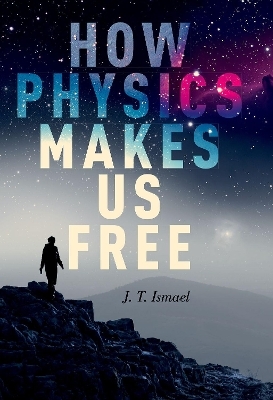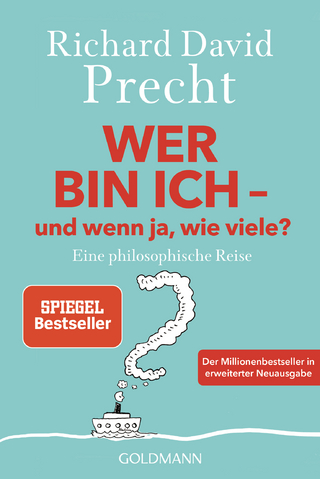
How Physics Makes Us Free
Oxford University Press Inc (Verlag)
978-0-19-009058-6 (ISBN)
In 1687 Isaac Newton ushered in a new scientific era in which laws of nature could be used to predict the movements of matter with almost perfect precision. Newton's physics also posed a profound challenge to our self-understanding, however, for the very same laws that keep airplanes in the air and rivers flowing downhill tell us that it is in principle possible to predict what each of us will do every second of our entire lives, given the early conditions of the universe.
Can it really be that even while you toss and turn late at night in the throes of an important decision and it seems like the scales of fate hang in the balance, that your decision is a foregone conclusion? Can it really be that everything you have done and everything you ever will do is determined by facts that were in place long before you were born? This problem is one of the staples of philosophical discussion. It is discussed by everyone from freshman in their first philosophy class, to theoretical physicists in bars after conferences. And yet there is no topic that remains more unsettling, and less well understood.
If you want to get behind the façade, past the bare statement of determinism, and really try to understand what physics is telling us in its own terms, read this book. The problem of free will raises all kinds of questions. What does it mean to make a decision, and what does it mean to say that our actions are determined? What are laws of nature? What are causes? What sorts of things are we, when viewed through the lenses of physics, and how do we fit into the natural order? Ismael provides a deeply informed account of what physics tells us about ourselves. The result is a vision that is abstract, alien, illuminating, and-Ismael argues-affirmative of most of what we all believe about our own freedom. Written in a jargon-free style, How Physics Makes Us Free provides an accessible and innovative take on a central question of human
J.T. Ismael is Professor of Philosophy at Columbia University. She earned her Ph.D at Princeton University and has also taught at Stanford University and the University of Arizona for many years. She has held fellowships from the Center for Advanced Study in Behavioral Sciences at Stanford, the National Humanities Center, a QEII from the Australian Research Council and the Templeton Foundation. In addition to How Physics Makes Us Free, she is the author of The Situated Self (OUP 2007) and Essays on Symmetry (2001). She splits her time between Manhattan and the Sonoran Desert, where she is happier than anywhere else.
Preface
Part I: Selves in Nature
O A clash of facades
1 What am I?
2 The rise of the Self-governor
3 The Unity of the self
Part II: Human Action and the Natural Order
4 How can I be free if my actions are determined by physical laws? The Consequence
Argument
5 How can I be free if my actions are caused by things outside my control? Causation
6 The Open Future
7 The Paradox of Predictability
8 Self-Constitution; the making of the self
Glossary
Works Cited
Suggestions for Further Reading
Index
| Erscheinungsdatum | 07.11.2019 |
|---|---|
| Zusatzinfo | 6 illustrations |
| Verlagsort | New York |
| Sprache | englisch |
| Maße | 231 x 155 mm |
| Gewicht | 431 g |
| Themenwelt | Geisteswissenschaften ► Philosophie ► Metaphysik / Ontologie |
| Naturwissenschaften | |
| ISBN-10 | 0-19-009058-8 / 0190090588 |
| ISBN-13 | 978-0-19-009058-6 / 9780190090586 |
| Zustand | Neuware |
| Informationen gemäß Produktsicherheitsverordnung (GPSR) | |
| Haben Sie eine Frage zum Produkt? |
aus dem Bereich


